Walt Whitman has been a perpetual muse and menace to poets and novelists alike. His poetry has been given new life in over 1,000 musical settings. Mahatma Gandhi and Joseph Stalin both recited his work. Schoolchildren chant “O Captain, My Captain!” and scholars fill books with the most intrusive speculations about him. His visage sells hipster T-shirts in Greenwich Village; his voice sells everything from Levi’s to iPads. Whitman—as the poet himself said—contains multitudes.
Roy Harvey Pearce once wrote that “the history of American poetry could be written as the continuing discovery and rediscovery of Whitman, an ongoing affirmation of his crucial relevance to the mission of the American poet: which is, as it is everywhere, simply to tell us the truth in such a way that it will be a new truth, and in its newness will renew us and our capacity to have faith in ourselves, only then together to try to build the sort of world which will have that faith as its necessary condition.”
The very content of this course confirms Pearce’s claims for the sheer magnitude of Whitman’s influence. Indeed, Thomas Gardner has written that Whitman’s influence is so generalized in our culture–especially literary culture–that we might consider what he gave us as a particular set of tensions that continue to reverberate. Keeping these tensions in mind, we will also work very hard to expand the scope of his suggestion beyond easy affirmation and faith, even as we move beyond poetry to prose and popular culture, and beyond America to the wider world. While we will necessarily follow certain well-worn tracks of Whitman’s influence, we will also stray frequently outside of them. This semester, we will ask questions such as the following: How have American writers felt Whitman’s influence in different historical and cultural contexts? How did Whitman influence writers in other countries? How is Whitman’s presence felt in the world beyond poetry—in novels, in songs, in ads for blue jeans and iPads? And how are emerging writers today continuing to respond to Whitman’s influence? Whitman famously proclaimed that he contained multitudes and contradictions alike; I conceive of this course in precisely the same way.
We will begin this course by exploring not some monolithic Whitman, but a Whitman in many guises: one of the roughs, the wound-dresser, the subversive lover, the solitary singer, the master, the slave, the prophet, the prose writer, the comrade, the democrat, the good gray poet. Alongside this survey of Whitman’s primary works, we will read artists responding to Whitman in various ways. What energies do that carry forth? What suspicions do they harbor? What poetic mission lies unfulfilled? The we will read include Ezra Pound, Hart Crane, Langston Hughes, Pablo Neruda, Federico Garcia Lorca, George Oppen, June Jordan, Sherman Alexie, Ben Lerner, Claudia Rankine, and Juliana Spahr among others.
As a senior seminar, this course is less about some illusion of “coverage” or knowledge of a certain period and more about how you, as a mature English major–with broad knowledge, keen interest, and a set of writerly tools at your disposal–will choose to engage in a rigorous research project involving Whitman and his influence. We will begin thinking about that broader project on day one, and will continue to discuss our ideas as the semester unfolds.
Required Texts
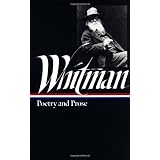 Walt Whitman Poetry and Prose (Library of America 1982)
Walt Whitman Poetry and Prose (Library of America 1982)
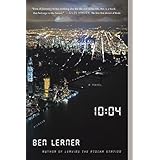 10:04l, by Ben Lerner (2015)
10:04l, by Ben Lerner (2015)
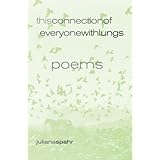 This Connection of Everyone with Lungs, by Juliana Spahr (2005)
This Connection of Everyone with Lungs, by Juliana Spahr (2005)
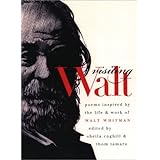 Visiting Walt, eds. Sheila Coghill and Thom Tammaro
Visiting Walt, eds. Sheila Coghill and Thom Tammaro
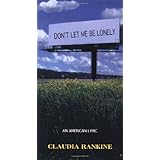 Don’t Let Me Be Lonely: An American Lyric, by Claudia Rankine (2004)
Don’t Let Me Be Lonely: An American Lyric, by Claudia Rankine (2004)
Learning Objectives
- Understanding Literary Influence: using Whitman as a case-study, this course introduces students to the ways in which literary influence occurs both directly and indirectly, in both literary and pop-cultural settings
- Collaborative Engagement: students will have many opportunities to engage in conversations in class and online, both in relation to course readings and in relation to research projects
- Cumulative Skills Demonstration: as a capstone seminar, this course is designed to allow you to use the skills and knowledge you have gained in 200 and 300-level courses (related to close-reading, research, and composition) to pursue a substantial scholarly project of your own choosing related to the course topic.
By the end of this course, students will:
- have a strong understanding the role Walt Whitman has played in the construction of American identity, especially as it relates to literary and cultural production. This understanding will be evaluated through in-class participation and blogging assignments across the semester.
- have applied this understanding of Whitman and his influence to a range of subsequent artists through two in-class presentations whose goal is to analyze a specific poem or other cultural artifact in the context of Whitman’s influence.
- have created an original, significant, mentored, multiple-draft research-based project on a subject of their own choosing related to Walt Whitman and his influence across the twentieth-century and beyond.
- have participated in a community of scholars, collaborating and offering feedback on the work their peers create in the final research-based project.